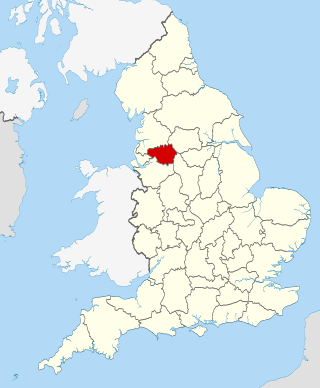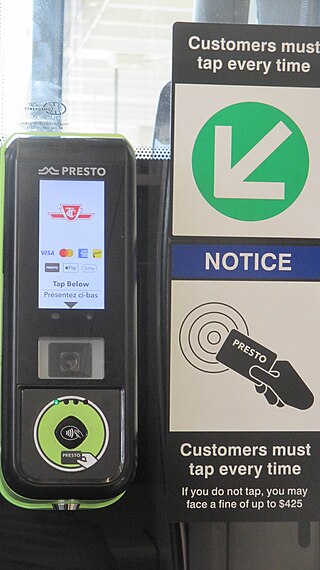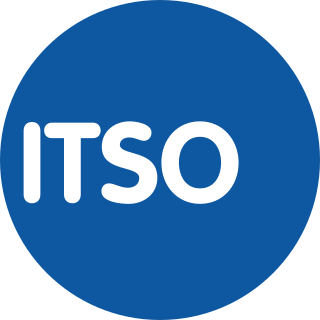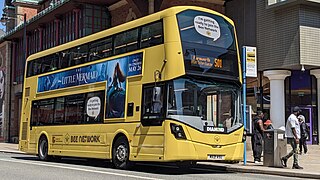Related Research Articles
In the United Kingdom, passenger transport executives (PTEs) are local government bodies which are responsible for public transport within large urban areas. They are accountable to combined authorities, which were created between 2011 and 2016 and took the role of integrated transport authorities (ITAs). The PTEs have joined together to form the Urban Transport Group, in which Transport for London and Strathclyde Partnership for Transport also participate.
Merseytravel is the passenger transport executive, responsible for the coordination of public transport in the Liverpool City Region in North West England. Merseytravel was established on 1 December 1969 as the Merseyside Passenger Transport Executive. From 1 April 2014, with the creation of the Liverpool City Region, Merseytravel expanded its area of operation from the metropolitan county of Merseyside to also include the Borough of Halton.

Transport for West Midlands (TfWM) is the public body responsible for co-ordinating transport services in the West Midlands metropolitan county in England. It is an executive body of the West Midlands Combined Authority (WMCA), with bus franchising and highway management powers similar to Transport for London. TfWM's policies and strategy are set by the Transport Delivery Committee of the WMCA.

Transport for Greater Manchester (TfGM) is a local government body responsible for co-ordinating transport services throughout Greater Manchester in North West England. It is an executive arm of the Greater Manchester Combined Authority (GMCA), the city region's administrative authority. The strategies and policies of Transport for Greater Manchester are set by the GMCA and its Greater Manchester Transport Committee (GMTC). The committee is made up of 33 councillors appointed from the ten Greater Manchester boroughs, as well as the Mayor of Greater Manchester.

Fares to use the Toronto Transit Commission (TTC) transit system in Toronto, Ontario, Canada, can be paid with various media. The price of fares varies according to age, occupation, income level, and health condition of riders.

Tyne and Wear PTE, branded as Nexus, is an executive body of the North East Joint Transport Committee and is best known for owning and operating the Tyne and Wear Metro. It replaced the Tyneside PTE on 1 April 1974.

ITSO Ltd is a non-profit membership organisation assisting standardisation of public transport ticketing in the United Kingdom.

In numismatics, token coins or trade tokens are coin-like objects used instead of coins. The field of token coins is part of exonumia and token coins are token money. Their denomination is shown or implied by size, color or shape. They are often made of cheaper metals like copper, pewter, aluminium, brass and tin, or non-metals like bakelite, leather and porcelain.
There is no single 'discount railcard' available on the UK railway network. In addition to the large number and variety of short-term or localised promotional fares that have been available to passengers on the British railway network in recent decades, there are many permanent concessionary fare schemes available to passengers. Some of these take the form of Railcards, which can be purchased by people who qualify according to the conditions, and which give discounts for all journeys over a period; other concessions are available for individual journeys. In all cases, details of the type of concession will be printed on the passenger's travel ticket, to distinguish reduced-rate tickets from those sold at the standard full fare.
A free travel pass is the privilege of a certain class of passengers to use a public transport service without paying a fare or presenting a ticket. They may need to present an identification card produced by their employer or other sponsoring organization, or by the transit provider.

get me there is an electronic ticketing scheme under development by Transport for Greater Manchester (TfGM) for use on public transport services in Greater Manchester, England. It was first announced and confirmed as an integrated travel card, comparable to London's Oyster card, for Greater Manchester in June 2012, following a bid from the Greater Manchester Combined Authority.
Buses are the most widespread and most commonly used form of public transport in the United Kingdom. In Great Britain, bus transport is owned and governed by private sector companies, except in Greater London. If a socially desirable service cannot be economically operated without a subsidy, then local councils can support bus companies to provide the service, often after an open competitive tendering exercise. In Northern Ireland, bus services are publicly owned, governed and delivered, as is the case in the Republic of Ireland.

A transit pass or travel card, often referred to as a bus pass or train pass etc., is a ticket that allows a passenger of the service to take either a certain number of pre-purchased trips or unlimited trips within a fixed period of time.

The Concessionary Bus Travel Act 2007 is an Act of the Parliament of the United Kingdom which entitles all people resident in England who are either disabled or over the age of 60 to free travel on local buses at off-peak times anywhere within England ; previously, free travel had only been available within the recipient's local authority area.

The TFI Leap Card is a contactless smart card for automated fare collection overseen by Transport for Ireland (TFI). It was introduced in the Greater Dublin area in 2011 for Luas, DART, Iarnród Éireann and Dublin Bus, but acceptance has significantly expanded, and it is now accepted in cities nationwide and on some longer distance commuter routes. Initially, Leap Cards offered only a pre-paid electronic wallet system for single-trip fares; since May 2014, it has also been possible to load it with weekly, monthly and annual subscriptions. In September 2017, there were over 2.5 million Leap Card users according to the National Transport Authority. The Leap Card is the result of many years' work by the Railway Procurement Agency and the National Transport Authority as part of the rollout of an integrated ticketing scheme for public transport in Dublin city. Fares are generally discounted compared to cash prices, and integrated ticketing is offered in the Dublin area via a flat fare system across all modes of transport. The minimum top-up for the card is currently €5, and it can be topped up via iPhone/Android App, at LUAS or DART ticketing machines, and in convenience stores offering Payzone services.
The Scottish National Entitlement Card (NEC) is a Scotland-wide smart card scheme run by Scottish Local Authorities on behalf of the Scottish Government. It is predominantly operated as a concessionary travel pass, but can also act as Proof of Age for young people (Young Scot NEC) and give access to civic services such as libraries and leisure centres depending on the local authority.
A reduced fare program refers to special programs providing particular passengers with a discounted fare option for travel on a public transport system. In the United States, public transportation systems that receive federal funding are required to offer, at minimum, half fares to the elderly and handicapped persons during off peak travel. Some transportation systems also extend reduced fare options to youth, students, military personnel, and low-income passengers.

Fflecsi is a trial demand-responsive bus service administered by Transport for Wales (TfW) and local authorities, operated by local bus operators across Wales. Pilot trials of the service are conducted across Wales, which included a city-wide trial in Newport until September 2022. The effectiveness of the service is being monitored as full bus services resume in Wales during the COVID-19 pandemic. During the pilots, fflecsi will replace some pre-existing scheduled bus routes in the service areas where it operates. The technology behind the service is made by ViaVan, and the pilot is funded by the Welsh Government, to invest in new approaches to public transport in Wales as part of their Llwybr Newydd strategy. The pilot was included in Welsh Labour's manifesto for the 2021 Senedd election, as part of their plan to increase investment in bus services, and reducing Wales' carbon emissions.

The Bee Network is an integrated transport network for Greater Manchester, composed of bus, tram, cycling and walking routes. Transport for Greater Manchester (TfGM) is expected to have the network operational by 2024, with commuter rail services expected to be joining the network in 2030. Initially revealed in 2018, the project is aiming to create a London-style transport system, to encourage more people to take public transport instead of cars.
Public transport in South Yorkshire mainly consists of three modes: bus, tram and train.
References
- ↑ "National Transport Tokens". Concessionary Transport Solutions. Archived from the original on 3 March 2019. Retrieved 27 August 2018.
- 1 2 Voice, David (2011). "Chapter 4". Tram and Bus Tokens of the British Isles. Sutherland: Adam Gordon. ISBN 978-1-874422-84-6.